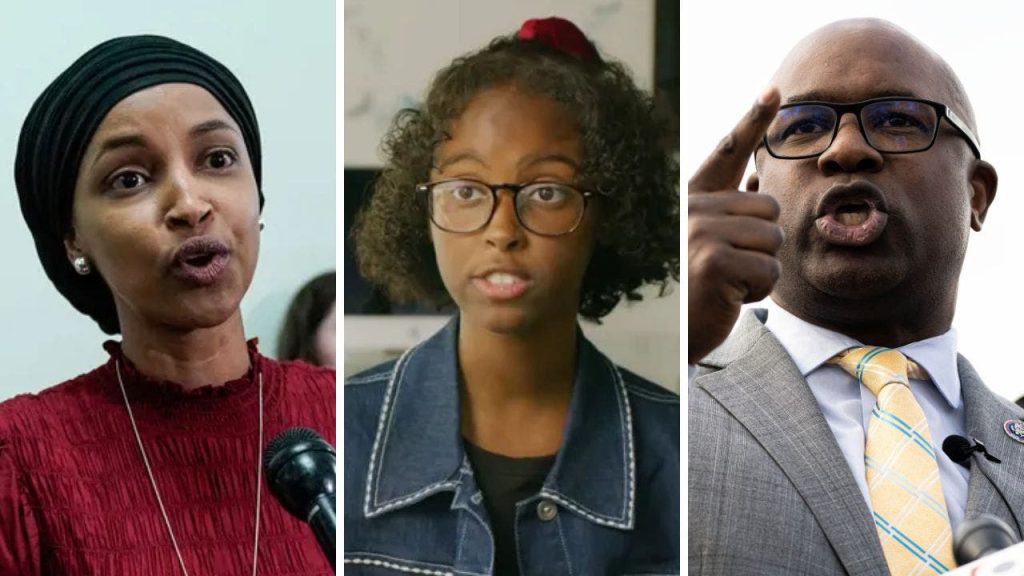Rep. Jamaal Bowman, D-N.Y., believes that the arrest of Rep. Ilhan Omar’s daughter, Isra Hirsi, at anti-Israel protests at Columbia University was political payback for Omar’s questioning of the institution’s leadership the day before. Bowman claimed that Omar had criticized Columbia’s commitment to free academic expression during a congressional hearing on Wednesday, and the following day Hirsi was arrested and suspended from Barnard College for participating in the protests. Hirsi, who is an organizer with Columbia University’s Apartheid Divest group, was released from police custody after being charged with trespassing.
Hirsi’s arrest came as part of a larger protest at Columbia University by dozens of anti-Israel activists, who set up an encampment on the main lawn to protest Israel’s war against Hamas. The protests included calls for an intifada and the death of Israeli Prime Minister Benjamin Netanyahu. During the congressional hearing, Omar had raised concerns about an alleged attack with a “toxic chemical substance” at an anti-Israel protest on campus, which turned out to be a non-toxic flatulence spray called “Liquid A–” and “Wet Farts.” The protests at Columbia have been ongoing, with activists demanding divestment from companies complicit in genocide, transparency of Columbia’s investments, and amnesty for students facing repression.
Bowman criticized Columbia for suspending Hirsi and suggested that educational institutions should not engage in political reprisals. He argued that the move was intended to punish Omar for her criticism of the institution’s leadership. Hirsi, who was smiling and waving as she left police headquarters after her release, remains committed to standing with Palestinians facing genocide and demanding divestment, transparency, and amnesty for all students facing repression. Barnard College, where Isra Hirsi was suspended, is one of four undergraduate schools affiliated with Columbia University with an independent admissions process and administration.
Hirsi’s arrest highlights the growing tensions around the Israeli-Palestinian conflict on college campuses and the increasing targeting of houses of worship for protests by “radical” pro-Palestinian groups. The situation at Columbia also underscores concerns about academic freedom and free expression on campus, with some questioning the handling of protests and activism by university administrators. As the situation continues to unfold, it remains to be seen how colleges and universities will navigate these complex issues and ensure a safe and inclusive environment for all students.


